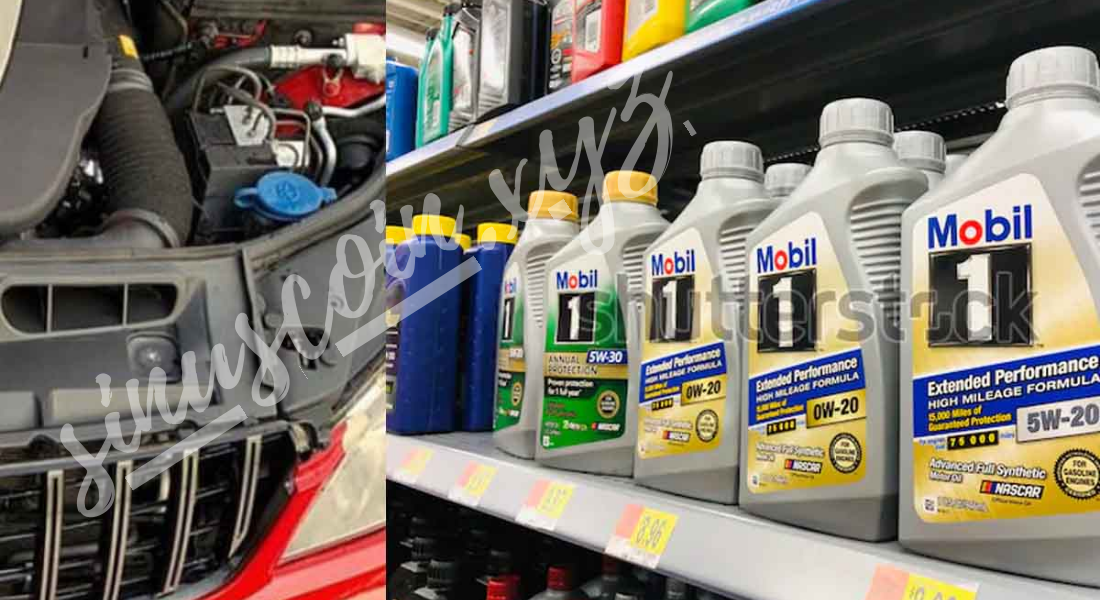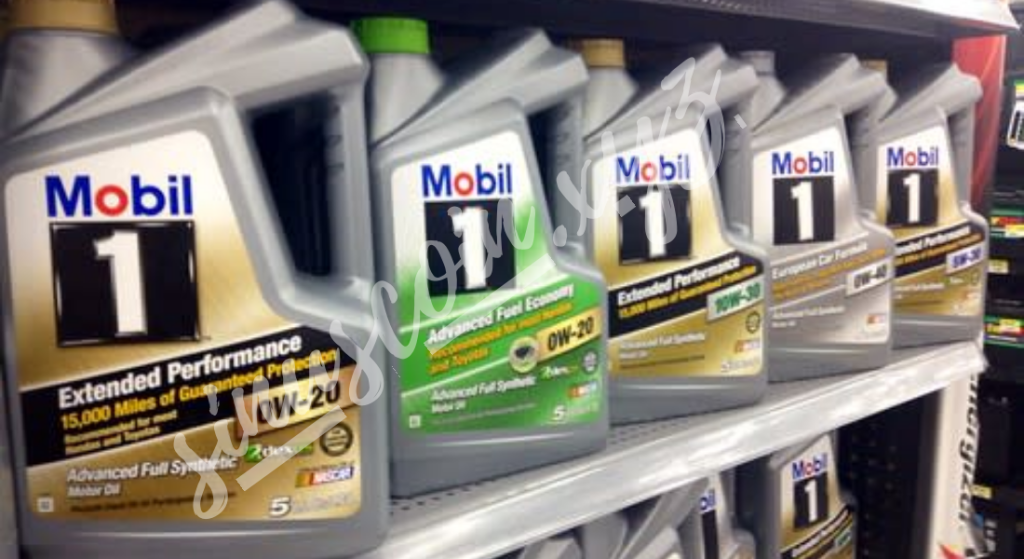Blog
Synthetic Oil for Cars The Ultimate Guide to Better Performance and Longevity
Discover why synthetic oil for cars is the top choice for better performance, fuel efficiency, and engine longevity. Learn how it can transform your driving experience.
Switching to synthetic oil for cars offers numerous benefits, from improved performance to enhanced fuel efficiency and extended engine life. While traditional motor oils are effective, synthetic oil takes things to a new level with advanced engineering that provides superior lubrication and protection under extreme conditions. Here’s a detailed look at why synthetic oil is an excellent choice for your vehicle and how it can elevate your driving experience.
1. What is Synthetic Oil for Cars, and How Does It Work?
Synthetic oil for cars is a specially formulated lubricant designed to perform under extreme temperatures and driving conditions. Unlike conventional oil, which is refined from crude oil, synthetic oil is engineered in a lab, allowing manufacturers to control its molecular structure. This controlled process creates a lubricant that is more stable and resistant to breakdown, offering better protection and performance for modern engines. Synthetic oil works by reducing friction between engine parts, minimizing wear, and improving the overall efficiency of your car.
2. Key Benefits of Using Synthetic Oil for Cars
Switching to synthetic oil offers several significant benefits that contribute to a smoother, more efficient engine. Here’s why it’s the top choice for many drivers:
- Enhanced Engine Protection: Synthetic oil creates a strong barrier between moving parts, reducing wear and tear even under high stress.
- Better Fuel Economy: The reduced friction from synthetic oil improves fuel efficiency, allowing your car to go farther on less fuel.
- Extended Oil Change Intervals: Synthetic oil lasts longer than conventional oil, which means fewer oil changes and reduced maintenance costs.
- Excellent Performance in Extreme Temperatures: Synthetic oil is designed to perform consistently in both hot and cold climates, making it ideal for all-weather driving.
These benefits make synthetic oil a wise choice for any driver looking to protect their engine and enhance vehicle performance.
3. Synthetic vs. Conventional Oil: Which is Better for Your Car?
When comparing synthetic oil for cars to conventional oil, synthetic stands out for its superior performance and longevity. Conventional oil is cheaper and suitable for older engines, but it breaks down faster and doesn’t perform as well under extreme conditions. Synthetic oil, on the other hand, maintains its stability and protective properties over time, making it ideal for modern engines that operate at higher temperatures. While synthetic oil may be more expensive upfront, its durability and protection make it cost-effective in the long run.
4. Types of Synthetic Oil for Cars: Full Synthetic vs. Synthetic Blend
There are two main types of synthetic oil for cars: full synthetic and synthetic blend.
- Full Synthetic: This oil is 100% synthetic and provides the highest level of performance and protection. It’s ideal for high-performance vehicles and drivers looking for maximum engine efficiency.
- Synthetic Blend: This oil is a mix of synthetic and conventional oils, offering a balance between performance and cost. It provides better protection than conventional oil but doesn’t perform as well as full synthetic.
Choosing the right type depends on your driving habits, vehicle type, and budget. Full synthetic is generally preferred for its long-term benefits, but a synthetic blend can be a good middle ground.

5. How Often Should You Change Synthetic Oil?
One of the advantages of using synthetic oil for cars is extended oil change intervals. While conventional oil often requires changes every 3,000 miles, synthetic oil can last between 7,500 and 15,000 miles, depending on the vehicle and driving conditions. However, always refer to your owner’s manual for the manufacturer’s recommendations, as some engines may have specific needs. By following these guidelines, you’ll keep your engine in optimal condition and avoid unnecessary maintenance costs.
6. Does Synthetic Oil Improve Fuel Efficiency?
Yes, synthetic oil for cars can improve fuel efficiency. Synthetic oil reduces friction within the engine, allowing it to run more smoothly and efficiently. When engine components move with less resistance, your car requires less fuel to operate, which can lead to noticeable savings at the gas pump over time. Although the fuel efficiency gains may seem small on a per-trip basis, they add up significantly, especially for drivers with high mileage.
7. Synthetic Oil for Cars in Extreme Temperatures
One of the biggest advantages of synthetic oil for cars is its ability to perform in extreme temperatures. In cold weather, synthetic oil flows more easily, allowing for quick engine lubrication during startup. In hot weather, synthetic oil remains stable and doesn’t break down as easily as conventional oil. This reliability makes synthetic oil ideal for drivers in areas with seasonal temperature extremes, as it ensures the engine remains protected no matter the climate.
8. Common Myths About Synthetic Oil for Cars
There are several myths about synthetic oil that can make drivers hesitant to switch. Here are some common misconceptions debunked:
- Myth 1: Synthetic oil causes leaks.
Synthetic oil doesn’t cause leaks; however, it can reveal pre-existing ones due to its smaller, more uniform molecules. If your engine has existing leaks, synthetic oil may make them more noticeable. - Myth 2: Synthetic oil is only for high-performance cars.
While high-performance cars benefit greatly from synthetic oil, it’s suitable for any vehicle, including everyday commuter cars. - Myth 3: Switching to synthetic oil voids warranties.
Most car manufacturers recommend synthetic oil for new vehicles, and it does not void warranties as long as you follow the recommended oil type.
Understanding these myths helps drivers make informed decisions and fully appreciate the advantages of synthetic oil.
9. Choosing the Right Synthetic Oil for Your Car
When choosing synthetic oil for cars, consider factors such as viscosity grade, brand reputation, and your specific driving needs. Viscosity grade (like 5W-30 or 10W-40) is important because it affects how the oil flows in different temperatures. Choosing a reputable brand with high-quality ingredients ensures your engine receives the best possible protection. Finally, consider factors like your driving environment, whether you take frequent short trips, or drive in extreme weather, to find the synthetic oil that suits your needs.
10. How to Switch to Synthetic Oil for Cars
Switching to synthetic oil for cars is straightforward, and most cars can make the transition without issue. Here’s a quick guide to making the switch:
- Consult Your Owner’s Manual: Check the recommended oil specifications for your vehicle to ensure compatibility.
- Choose the Right Oil Type: Decide between full synthetic and synthetic blend based on your budget and performance needs.
- Change the Oil Filter: To ensure the best results, always replace the oil filter when switching to synthetic oil.
- Follow Manufacturer’s Instructions: Adhere to the recommended oil change intervals for synthetic oil to maintain optimal engine health.
Making the switch is easy and provides long-term benefits for your engine’s performance.
Conclusion: Maximize Performance with Synthetic Oil for Cars
Using synthetic oil for cars is one of the best ways to enhance your vehicle’s performance, efficiency, and longevity. From better fuel economy to reliable performance in extreme temperatures, synthetic oil offers numerous advantages over conventional oil. Whether you drive a high-performance vehicle or simply want to prolong the life of your car, synthetic oil is a worthwhile investment that pays off over time. Make the switch today and experience the difference in smoother rides, fewer maintenance headaches, and a healthier engine.

